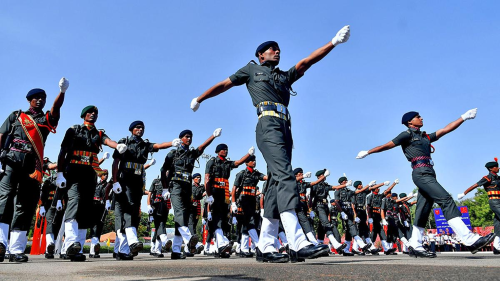Context
In the ever-evolving landscape of global security, the role of military education cannot be overstated. As conflicts continue to shift in nature and complexity, armed forces around the world are increasingly recognizing the importance of fostering academic rigor and strategic thinking among their ranks. The establishment of defense universities has become a common practice, aimed at equipping military officers with the intellectual tools necessary to navigate the uncertainties of modern warfare. However, despite the prevalence of such institutions in many countries, India has yet to operationalize its own Defense University (IDU), a delay that raises concerns about the nation's preparedness and strategic outlook.
The Significance of Professional Military Education
While the essence of warfare remains consistent, its dynamics are constantly evolving, presenting new challenges and demands for military personnel. In today's world, characterized by rapid information dissemination and unpredictable geopolitical shifts, officers must possess not only tactical acumen but also the ability to adapt to fluid situations. A robust Professional Military Education (PME) framework is essential to cultivate these skills, providing officers with the knowledge and critical thinking abilities necessary to excel in their roles over the course of their careers.
Drawing parallels with the evolution of PME in the United States offers valuable insights for India. The Goldwater-Nichols Defense Reorganization Act of 1986 catalyzed significant structural reforms within the U.S. military, underscoring the importance of educational institutions in fostering professionalism. Notably, the influence of figures like 'Ike' Skelton, whose recommendations led to sweeping reforms in military education, highlights the pivotal role of visionary leadership in shaping educational paradigms within armed forces.
A History of Slow Progress
India's journey towards establishing a dedicated Defense University has been marked by fits and starts. The idea was first mooted in 1967 by the Chiefs of Staff Committee, reflecting a recognition of the need for a comprehensive educational framework for the armed forces. Subsequent efforts, including a committee convened after the Kargil conflict in 1999, further underscored the urgency of such an institution. Despite receiving 'in principle' approval in 2010, progress on the IDU has been disappointingly sluggish.
While India boasts several esteemed training institutions for its armed forces, there remains a glaring absence of an integrated PME framework. Although the armed forces have established affiliations with civilian universities for degree programs, this piecemeal approach fails to address the overarching need for a centralized institution focused solely on military education. The IDU represents a critical step towards rectifying these deficiencies, providing a unified platform for academic excellence and strategic thinking within the armed forces.
The Imperative of the Indian Defence University
The delay in operationalizing the IDU is a matter of grave concern, with far-reaching implications for India's defense preparedness and strategic culture. Some have questioned the necessity of the IDU in light of the establishment of the Rashtriya Raksha University (RRU) in Gujarat. However, such comparisons overlook the distinct objectives and focus of each institution. Unlike the RRU, the IDU is specifically tailored to meet the educational needs of the armed forces, offering a curriculum centered on military strategy and national security.
The urgency of operationalizing the IDU cannot be overstated. Every delay represents a missed opportunity to strengthen India's defense capabilities and enhance inter-service integration. By providing a platform for joint warfighting education, the IDU lays the foundation for a more cohesive and agile military, capable of responding effectively to the multifaceted challenges of modern warfare.
Conclusion
In conclusion, the establishment of the Indian Defence University is a long-overdue imperative for India's armed forces. As the nature of warfare continues to evolve, the need for a comprehensive and integrated PME framework becomes increasingly pressing. The IDU represents not only a platform for academic excellence but also a catalyst for enhancing India's strategic outlook and defense preparedness. The time has come for decisive action to operationalize the IDU, ensuring that India's military remains at the forefront of innovation and adaptability in an ever-changing world.
|
Probable Questions for UPSC Mains Exam 1. In light of the evolving nature of global conflicts, discuss the significance of Professional Military Education (PME) in equipping armed forces with the necessary skills to navigate contemporary security challenges. Drawing parallels with the United States' experience, analyze the key factors that contribute to the effectiveness of PME frameworks in enhancing military professionalism. (10 marks, 150 words) 2. The establishment of the Indian Defence University (IDU) has been marred by delays despite decades of deliberation and planning. Critically evaluate the reasons behind the sluggish progress in operationalizing the IDU and assess the potential implications of further postponement on India's defense preparedness and strategic culture. (15 marks, 250 words) |
Source – The Hindu







